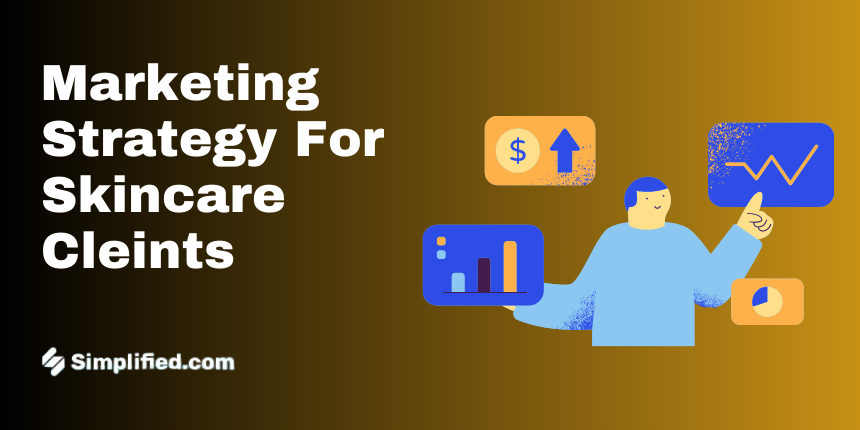
Personal branding has been a game-changer for my SaaS PPC agency, Getuplead. When I first started one year ago, I underestimated the power of a strong personal brand. To be honest, I was quite skeptical about the benefits of spending time to be visible and recognizable on the internet.
How the hell should I be known? But over time I realized it’s not just about being known, it’s about being known for something valuable. Here are some lessons I’ve learned and tips that have worked for me.
1. Use Social Networks Where Your Audience Is
When I launched my business, I was commenting and publishing some posts across every social media platform Facebook, Twitter, Instagram, LinkedIn. Trying to be everywhere was really exhausting and not very effective at all. Then, I took a step back and did some research to find out where my target audience spent most of their time. Looking at different groups and communities on forums and social media, you can easily spot the most valuable places for your audience by checking the quality of the conversations.
The more advanced and expert-level the conversations, the more valuable it is for your audience. Some platforms are just big billboards full of noise where everyone is shouting about what they do; this is not where your audience will love to spend time. For example, Facebook groups are often spammed with low-quality content.
For my business, my targets are B2B SaaS founders and marketers. Based on these criteria, LinkedIn and Reddit were the sweet spots. I started focusing my efforts there, and the results were almost immediate. Using a social media analytics can also help you to find new topics and where your audience is.
I remember posting a case study on LinkedIn about a project I was particularly proud of. The post gained traction quickly, leading to numerous comments and shares. More importantly, it brought in several new client inquiries. It was a clear sign that focusing on the right platforms could yield significant benefits.
2. Have a Strong Opinion and Be Different
Being the CEO of a company you want to be consensual and not hurt anyone because you represent an organization and have a responsibility. So early in my CEO journey I played it safe with my opinions, afraid of scaring potential clients. But I soon realized that being different and having a strong voice can actually attract more of the right people and more than that, make you recognizable and different. The fact is 99% of posts on social media try to avoid hurting feelings and aim to be as consensual as possible but that’s the best way to blend into the crowd on the internet.
For instance I wrote a blog post challenging a common practice in my industry. I was first nervous about the reaction but it turned out to be one of my most popular posts. People engaged a lot and this created a real buzz with so many different opinions and reactions that I reached tons of potential clients with this post.
People appreciate authenticity and a fresh perspective. By sharing my unique take on things, I was able to connect with others who shared my views or were intrigued by them. This not only set me apart from the competition but also helped build a loyal following. People are bored of common opinions and they want to be shaken and surprised. Being as honest as possible with yourself on the internet is the key.
3. Give Without Asking
One of the best strategies I’ve adopted is giving without expecting anything in return. That’s not only advice but also my first rule. I have never pitched any services, only answering questions my audience was struggling to find an answer to. This is a great way to create valuable content and gain trust and authority at the same time. When you think about it, when you help someone solve a problem publicly on the internet, it’s free advertising and you create value that can be useful for many other people.
They will see you as an expert willing to help. Last but not least, try to participate for free in as many podcasts or webinars as you can and share some expertise and tips. Doing this kind of content helps you build a reputation and reach more people. This opened doors to new opportunities.
This approach built trust and established me as a reliable resource in my industry. Months after a webinar I did, I received a call from someone who had attended it. They had a major project and wanted me to lead it. This experience reinforced the idea that providing value upfront can lead to significant returns.
4. Never Sell
One of the most counterintuitive lessons I’ve learned is that overt selling can often do more harm than good. Also, the best way to sell is not to look like someone who wants to sell. If you pitch your service, people will perceive you as an opportunist at best or a desperate person trying to take advantage of them at worst.
Instead, I focus on building relationships and providing value. This doesn’t mean you can’t share some results, but do it in a smart way. I often share client success stories not as sales pitches but as examples of what’s possible. I also engaged in meaningful conversations without any hidden agendas.
For instance, during a conference event where I was one of the speakers, I spoke at length with a potential client about industry trends and challenges without once mentioning my services. A week later, they reached out, impressed by my insights and eager to work with me. This approach of ‘never selling’ but always being helpful has consistently attracted more clients than direct pitches ever did.
5. Be Useful and Solve Problems
At the core of effective personal branding is the ability to solve problems for your audience. I made it a point to understand their pain points deeply and address them through my content. Whether it was sharing a post, some tactics, strategies or just answering to some questions, my goal was to be genuinely useful.
One of my most rewarding moments was when a client thanked me for a blog post that helped them navigate a critical business challenge. They later became one of my most loyal clients. This reinforced my belief that when you focus on being useful, your audience will see you as an invaluable resource.
6. Build a System to Streamline the Process
As a small business owner your time is precious, so time management is crucial. Initially, I was constantly interrupted by notifications and found myself trying to respond to every new thread on social platforms. This approach was not sustainable and drained a lot of my time and energy. If you have to manage operations, onboard new clients, and train your team, you can’t be immediately available on social media every time something is published.
I discovered that taking the time to craft longer and deeper responses was more effective than rushing to reply immediately with a short answer. A published post will live for weeks, months, or even years, especially on Reddit, where Google often displays past threads as search results. If you are the first person to answer, it doesn’t give you a specific advantage, but if you create a very detailed and thoughtful response, your comment will be more liked and commented on than others, so you’ll gain more visibility.
The second step to streamline the process is to establish a routine. I dedicate specific times during the week—30 minutes every day—to answer and interact on LinkedIn and the same amount of time for Reddit. This way, I manage my time better and still maintain a strong presence. You can also use a social media scheduler to help you manage the publication of your content across the platform.
Reddit became an important platform for establishing my expertise, but it wasn’t the only one. I also used LinkedIn to connect with potential clients and showcase my expertise. Each platform served a unique purpose in my overall strategy.
By building a system, I could balance these activities without becoming overwhelmed. It allowed me to maintain a consistent presence across different channels without sacrificing the quality of my engagement.
Conclusion
Personal branding is about being authentic, consistent, and genuinely helpful. By strategically using social networks, having a strong and unique voice, giving without expecting anything in return, avoiding hard sells, solving problems, and building a streamlined system, you can create a powerful personal brand that drives business success. It’s a journey that requires patience and dedication, but the rewards are well worth it.





















